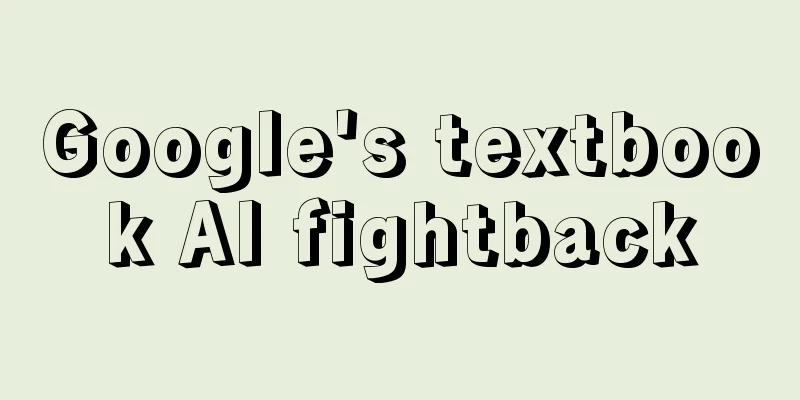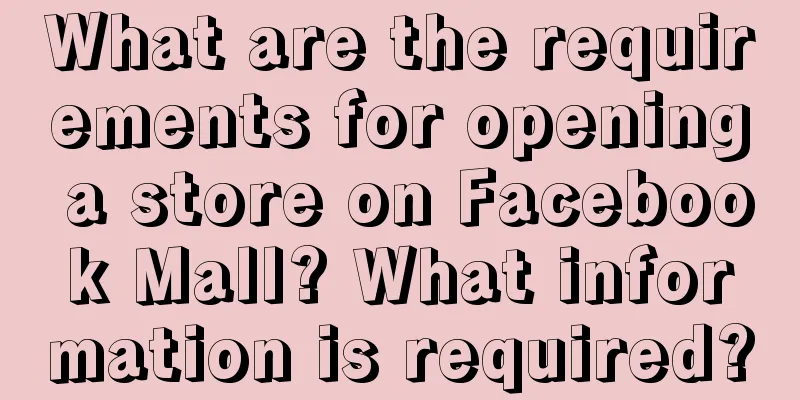Google's textbook AI fightback

In the face of Google's huge commercial territory, simply releasing GPT-4o one day in advance does not seem to bring enough advantages to OpenAI. At the 2024 Google I/O conference, Google demonstrated a series of AI technology breakthroughs, including AI-generated videos, AI-driven Workspace automation tools, and a voice assistant that is as effective as GPT-4o. The release of numerous AI products has created a "wolf pack effect" in a sense, helping Google reverse its passive pursuit. In addition, Gemini's multimodal capabilities and Android 15's AI enhancements not only improve the user experience, but also significantly enhance the stickiness of the Google ecosystem. In contrast, OpenAI may be one step ahead in technology, but its breadth of application is relatively single. Today, Google's counterattack with a "giant style" is becoming more and more sharp, and for Sam Altman, who is still cautious about the release time of GPT-5, the pressure is becoming greater and greater. 1. Chapter 1 of the textbook on giants’ counterattack: Magnifying advantagesThe strategic layout of giant enterprises is often based on the premise of continuously strengthening their advantageous businesses. Google started with search and excelled in a series of office suite services such as Workspace, which also became the focus of the 2024 Google I/O conference. The perfect AI search capability is what the industry is looking forward to. The AI Overview released by Google this time has done a lot of work on multimodal issues. For example, "Ask with video" uses Gemini's multimodal capabilities combined with Google Lens to realize video search. By just recording a video, you can know how the user uses a record player or even repairs a camera. Google Photos has also launched a new AI function "Ask Photos", which can find out "a child's years of swimming learning process" in a large number of photos through simple questions. OpenAI also demonstrated a multimodal AI assistant called Project Astra that can watch and understand what is seen through the device camera, remember where the user's things are, help the user "search" for items in the real world, or complete other tasks. The output results of Google's AI search are no longer a list of URLs, but a new integrated page - it is more like a report generated in response to user questions, which not only includes answers to the questions themselves, but also guesses and supplements on questions that users may have overlooked. In terms of product form, it is also rich in pictures and texts. A major domestic company also launched an AI search function, but it only implanted the output results of generative AI on the traditional search page, using about one-fifth of the space on the web page, and it can only be triggered for specific questions. The overall completion is low, so it was not released and promoted too high-profile. By comparing the two, Google's innovation in AI search is evident. In the limited search engine market, this has set a new standard. And for search advertising, which has been solidified for many years, there is more room for imagination. Google is not releasing a big model capability, but trying to recapture the minds of users. At present, Google's search is "Ask, Not Search", and the multi-modal interaction method is just to further improve the product concept built around "Ask" at the user level. The transformation of search is just the beginning. Google hopes that search can become a super portal to stimulate users' AI needs. Even if users don't know what to ask specifically, Google can give recommendations and help users brainstorm. At this time, the search interface will change further and become an information flow, and each card can be further operated. In addition to search, another area where Google has an advantage is Workspace. Google has released a product for Workspace that is very similar to the popular "digital employee" in China - AI Teammate. First, Gemini 1.5 Pro will soon be embedded in Workspace's documents, spreadsheets, slides, Drive, and Gmail sidebars, covering all aspects of daily business operations. Gemini can help users find specific business information rather than general information; retrieve relevant PDF files directly from emails; organize and manage receipts in emails and archive them, or extract information from receipts and add them to a spreadsheet. The addition of Gemini to the Gmail App also provides more detailed and contextual reply suggestions and can also provide users with summaries of emails. At the same time, Google has integrated Gemini with the Google ecosystem's calendar, tasks, and Keep, making its AI product a comprehensive digital assistant. Google has also set up a check mechanism before Gemini performs tasks to ensure the accuracy of information. The biggest advantage of Google Assistant over other smart assistants is the seamless integration of Gemini with Google's native products. In enterprises, the earliest digital employee products used RPA (Robotic Process Automation) to automate repetitive, highly quantitative, and rule-based tasks. The explosion of big language models in the past year has given many office software and office collaboration product companies an opportunity to launch digital employee products powered by big models in the fields of conferences, emails, collaboration, and document management, including many large domestic companies. Google's entry into this type of product has undoubtedly intensified competition in the industry and set a "giant" benchmark for companies focusing on this field. With the cooperation of Google's full set of tools, AI teammate's AI is no longer a scattered tool. Its functions are not just simple scheduling, booking meetings, and taking meeting minutes. With the cooperation of Google's entire family of buckets, AI teammate can truly understand the business flow, understand the business context, and draw conclusions. It can even help evaluate risky businesses and answer whether the project can be completed on schedule. This is even close to the job of an "assistant to the chairman." The Gemini-powered Workspace will be available to paying subscribers as a “universal assistant” in June 2024. AI Search and AI Workspace together form the initial appearance of Google's AI Agents: stronger multimodal capabilities, comprehensive and in-depth information processing in multiple scenarios, and true understanding of corporate workflows. In contrast, although OpenAI's GPT-4o has advantages in generative AI technology, it has not yet formed a comprehensive and efficient solution in office application scenarios. 2. Chapter 2 of the Giants’ Counterattack Textbook: Use Combination PunchesIn addition to its core business advantages, Google also comprehensively upgraded the entire ecosystem at the 2024 Google I/O conference. First, in the field of YouTube videos, Google has launched Veo, a competitor to Sora. Veo can also output stable 1080p videos of about 1 minute in length. Google said it has provided Veo to some creators for YouTube video production, and also promoted it to Hollywood for film production. Some of Veo's features will soon be available in YouTube Shorts. Google also launched Gemini Live, an “interruptible” voice assistant that competes with GPT-4o and enables a smooth two-way AI conversation experience on Android. There is also the character chatbot Gems, which is similar to OpenAI’s GPT Store and Character.AI. Gems can create customized ChatGPT chatbots to complete certain tasks and retain specific characteristics, such as talking to Einstein or Musk, or even making a “fake” psychologist for yourself. In addition, Google, like OpenAI, focuses on educational scenarios. Google has launched Circle to Search for Android, which can be applied to family education scenarios. It provides a personalized interactive education experience through a multimodal model. This product can not only understand and respond to students' questions, but also adjust teaching content according to learning progress, thus improving the interactivity and effectiveness of the education process. The epidemic has magnified the value of online education, and parents have begun to pay more attention to family education. According to the analysis of MarketsandMarkets, a research organization, the global digital education market is expected to grow from US$19.4 billion in 2023 to US$66.7 billion in 2028, with a compound annual growth rate of 28.0%. Products such as Gems, Circle to Search and Gemini Live can undoubtedly greatly improve the interactive experience of online education, and provide personalized education plans for different children based on AI, making up for the problem that the traditional education model is difficult to meet the needs of all students. In addition to business ecosystems and scenarios, Google has also upgraded its AI infrastructure, which mainly targets cost issues for large-model ToB businesses. At the Google I/O conference, Google upgraded its self-developed AI chip to the sixth-generation TPU (Tensor Processing Unit) Trillium, which has a 4.7-fold increase in computing performance per TPU compared to the fifth generation. Google also announced that it will become one of the first cloud providers to provide access to Nvidia's next-generation Blackwell processor. Google CEO Sundar Pichai said: "We will continue to invest in infrastructure to drive progress in artificial intelligence." Compared with the cooperation model between OpenAI and Microsoft, Google has improved the compatibility and interoperability of Google Cloud and AI-related services through close collaboration within its own business ecosystem, and has also provided developers with more powerful tools and support, making its overall technological and commercial competitive advantages more obvious. At this year's Google I/O conference, Google mentioned AI 124 times in total. From business ecology to application scenarios to infrastructure, Google has upgraded almost all its products and capabilities around AI. Compared with OpenAI, Google's business front is longer, which is both a disadvantage and an advantage. With a set of combined punches, all the releases of OpenAI the day before became the chapter content released by Google. This makes Google jump out of the level of simple product performance comparison and look down on the generative AI market competition in early 2024 from a high position. 3. Chapter 3 of the textbook on giants’ counterattack: Do something that new companies can’t affordFor Google, all its software capabilities will eventually be reflected in hardware - why not? Google has both product lines and relevant market experience. Compared with software services, hardware business is more asset-intensive, which is difficult for emerging companies to afford, but Google thrives. At this conference, Google not only made it clear that Pixel phones will have native Gemini capabilities, greatly improving the device's multitasking capabilities, but also announced many AI features that will be launched in Android 15. In fact, Gemini has already been launched as an independent app on Android. This time, during the Gemini conversation, users can directly drag and drop the generated images to other apps for use. In Android 15, Gemini supports YouTube video content recognition. Gemini can directly extract relevant information in the video playback interface, answer users' various questions about the video, and even generate a summary of the video content. In addition, users can run multiple applications at the same time without affecting performance, which was difficult to achieve in previous mobile phones. In addition, Gemini AI provides personalized recommendations based on user habits, making mobile phone use more intimate and convenient. This intelligent service improves user satisfaction and enhances Google's competitiveness in the smartphone market. The implementation of the real-time voice assistant function in Pixel and Android systems will also make the ecosystem more closed. The lightweight Nano version mentioned when Gemini was released has been confirmed to be used for Chrome improvements. In terms of lightweight models, Google has launched a new Gemini Flash. These two Gemini models and the open source Gemma model will accumulate model power for Google in future edge AI devices. Compared to the past discussions on chip performance and security, Google's AI phones are more sexy and more practical. Although the hardware level of Pixel phones has always been lagging behind in the mobile phone industry, its only competitive advantage is the native Android system. Now, as a native device of Android+AI, Pixel may usher in a new spring. Android's Gemini update will roll out to "hundreds of millions of devices in the coming months," and more contextual features are on the way. Android's ecological advantage has become so prominent for the first time, and Gemini has greatly contributed to it. For Apple, everything is unknown before WWDC. For the newly born Huawei Hongmeng, the challenge is even more intense. Interestingly, AI has not only found a wealth of application scenarios in Google's main hardware products, but Google also demonstrated the latest applications of Google Glass, as if to tell the outside world: with the support of AI, even projects that were considered failed in the past can now provide a foundation and inspiration for new innovations. Continuing to deduce from this, with the support of Gemini and hardware capabilities, even if Google wants to enter the hottest AI PC market, it will be extremely "smooth". IV. ConclusionHow do you evaluate Google's announcement? Let's first look at which companies Google has threatened. First, AI search. In addition to the well-known AI search company PerplexityAI and the legendary OpenAI search, Google's most direct threat is of course the traditional search engine. Google does not simply add an AI summary to the search results, or search in a natural language dialogue. Google's multimodal AI search can almost be said to have changed the paradigm of search, improving the intelligence of search while greatly improving the user experience. Based on Google's upgrade, whether it is Bing, which is powered by GPT-4, or Baidu, which uses Wenxin Yiyan to explore AI search, they must accelerate the pace of innovation in the product power of AI+search in order to maintain competitiveness in this field. In terms of office software and collaborative office, the upgrade of Workspace enables Google to provide "real" digital employees. Google is not only targeting its old competitor Microsoft, but also challenging all suppliers who develop digital employees, AI office software, and AI collaborative office. Companies represented by DingTalk, Feishu, and WPS may have to re-evaluate their product strength in terms of document processing, office, and collaboration. In the mobile phone industry, the manufacturer that is most impacted by AI is Apple. As the only giant that lags behind in the era of big AI models, if Apple does not introduce more innovations in the iOS ecosystem, it will be difficult for it to cope with the AI offensive from the Android camp. As for other mobile phone manufacturers, no matter how much they sing the concept of AI mobile phones, under the influence of Android+Gemini, the space for system-based AI upgrades will become smaller and smaller. To maintain their competitiveness, they can only "squeeze" some money in hardware, production costs, and supply chains. For the entire AI industry, OpenAI is the first to bear the brunt. In the past year, OpenAI has maintained a leading position in the AI industry with its advantages in big data, large computing power, strong algorithms, and strong engineering. However, with the popularization of technology and the development of other technology industries, the so-called technological advantages of OpenAI are becoming less supported. OpenAI's leading technology is changing from being imitated in the past to being released at the same time. The technological competition among AI companies is quietly shifting to commercial and product competition. Google has integrated its extensive product ecosystem to apply AI technology to more practical scenarios, such as mobile phones, office software, smart homes, and online education. It has gradually built a huge business ecosystem and a solid market leadership position. Future competition may be more reflected in the diversity of application scenarios and the competition for market dominance. Before the arrival of GPT-5 or other more powerful AI models, the disadvantages of AI companies such as OpenAI in application scenarios will continue to be magnified by Google. Today, Google is demonstrating in a textbook way how to fight back in the fierce market competition through a two-pronged approach of technology and business strategy. This is not only a game of technology, but also a contest of business models and ecosystem construction. |
>>: Middle-aged Alibaba, the value lies in hard work
Recommend
How to apply for Amazon's 7-day promotion? What are the conditions?
Many merchants on Amazon will learn about the plat...
How to check if Amazon search terms are natural positions? How to check the natural ranking of keywords?
For Amazon merchants, after opening a store, they ...
With a year-on-year growth of 250%, does going overseas mean setting up a street stall in the United States?
This article introduces how to operate a brand ove...
10 suggestions from friends after 618
Weak consumption may be caused by a variety of fac...
What does Amazon Advertising Portfolio mean and what does it do?
For Amazon merchants, it is necessary to better op...
WeChat + DeepSeek, several scenarios I can think of
There was another big news over the weekend—— WeCh...
No account blocking, no software needed! The secret of passive traffic diversion on the entire network, 200+ accurate customers a day!
In order to obtain accurate potential users online...
Xiaohongshu Hot Article Secrets [April]
In the commercial launch of Xiaohongshu, hot artic...
Are Lazada's merchants authentic? What is the difference between Lazada's local stores and cross-border stores?
Lazada is one of the largest online shopping platf...
How to prepare before Shopee live broadcast? How to do live broadcast well on Shopee?
There are still many merchants who open stores and...
How does Amazon view its own ad placements? How to choose ad placements?
When placing Amazon ads, you need to choose the ap...
How to choose store products when placing advertisements on Shopee?
Choosing suitable products for advertising can max...
How many "jack of all trades" do you have? Don't ruin yourself by planning
What planners should pursue is to create a plan wi...
Is the Shopee e-commerce platform profitable? How much is the income?
Now more and more merchants are opening stores on ...
“Why do people buy?”——Understanding the truth of purchases will provide a basis for brand marketing
This article explains what brand discourse power i...









